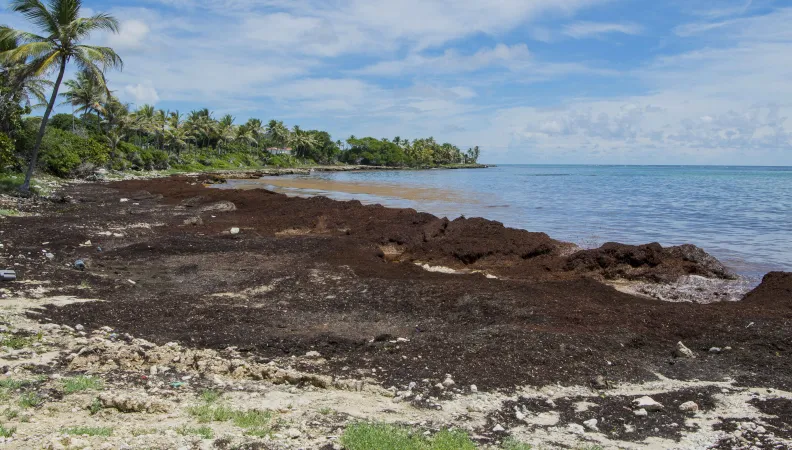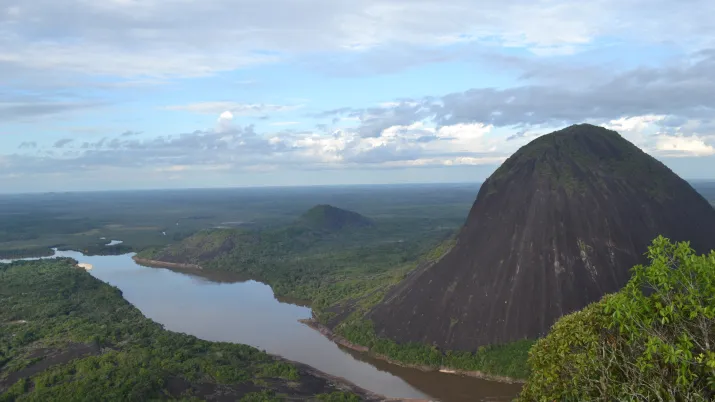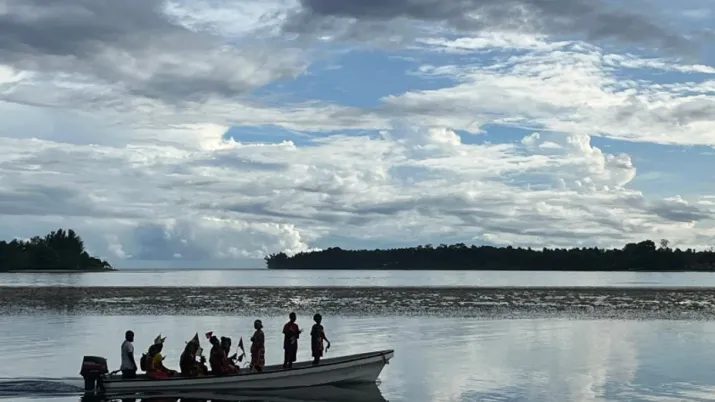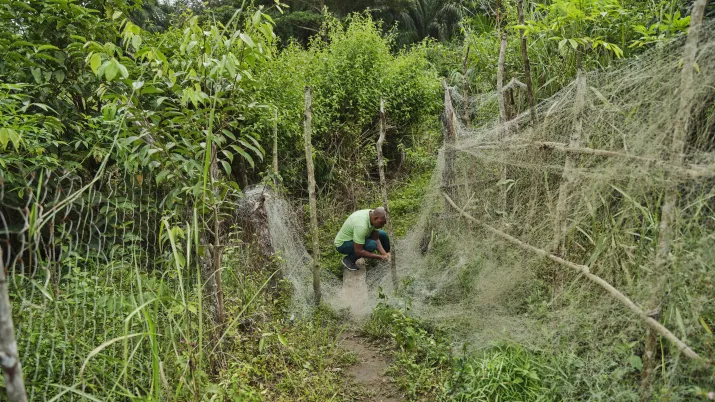Share the page
SARSEA - Sargassum Regional Strategies for ecosystem-based Actions
Project
Published on

-
Project start date
-
Status
Ongoing
-
Project end date
-
-
Financing amount (Euro)
-
8m
-
Country and region
-
Belize, Dominica, Dominican Republic, Grenada, Guadeloupe, Martinique, Mexico, Saint Lucia, Saint Vincent and the Grenadines, The Americas
SARSEA aims to foster regional cooperation dynamics in the Caribbean and support small island states in structuring a framework for the management and valorisation of sargassum.
Sargassum threaten marine ecosystems in the Caribbean
The Caribbean is affected by massive flows of sargassum leading to accumulation on the coasts. The decomposition of stranded sargassum leads to the degradation of coastal ecosystems (mangroves, seagrasses, coral reefs), an excess mortality of marine biodiversity, accelerated coastal erosion and soil pollution due in particular to the presence of heavy metals. The massive influx of sargassum also threatens key economic sectors (tourism, fishing), as well as the health and welfare of coastal populations (emission of toxic gases during decomposition).
The consequences of these strandings require a concerted management of public and private actors and innovative solutions to protect these fragile ecosystems and riparian communities.
SARSEA: a project to minimize the negative impacts of sargassum
SARSEA is a project funded by AFD, which aims to minimize and limit the negative impacts of stranded sargassum on local economies, communities and coastal ecosystems.
To achieve this, the project has three areas of operation:
- Strengthen regional cooperation in the Caribbean on sargassum planning and management approaches, contributing to raise international awareness of the issue
- Support small island states of the Caribbean to implement integrated sargassum management and valorisation operations
- Foster regional scientific cooperation to improve overall understanding of the sargassum phenomenon and support the development of research based public policies.
The project also includes a cross cutting gender outcome, aiming to mainstream gender in the integrative management operations of sargassum.
An overall cooperation between decision-makers, public and private actors, communities and scientists
Beneficiaries will help consolidate international treatment of sargassum issues through the strengthening of decision-makers' skills and access to data on sargassum impacts on local ecosystems, communities and economies.
Through improved planning of sargassum management operations and structuring of value chains, public actors, private actors and communities are encouraged to cooperate from the early stages of detection to recovery of sargassum, thus contributing to the implementation of a circular economy.
Strengthening a scientific network, contributing to research efforts and disseminating guidance notes to public decision-makers enable scientists, experts and government authorities to improve their knowledge of sargassum phenomena.
Similar projects
Regenerative nature-based tourism development
Ongoing
2025 - 2029
Funders : European Union, German State
SoNG – The Ocean and the Land for the People
Ongoing
2025 - 2030
Funders : Agence Française de Développement
Kopekoba
Ongoing
2025 - 2028
Funders : Agence Française de Développement, European Union, Central African Forest Initiative (CAFI)





